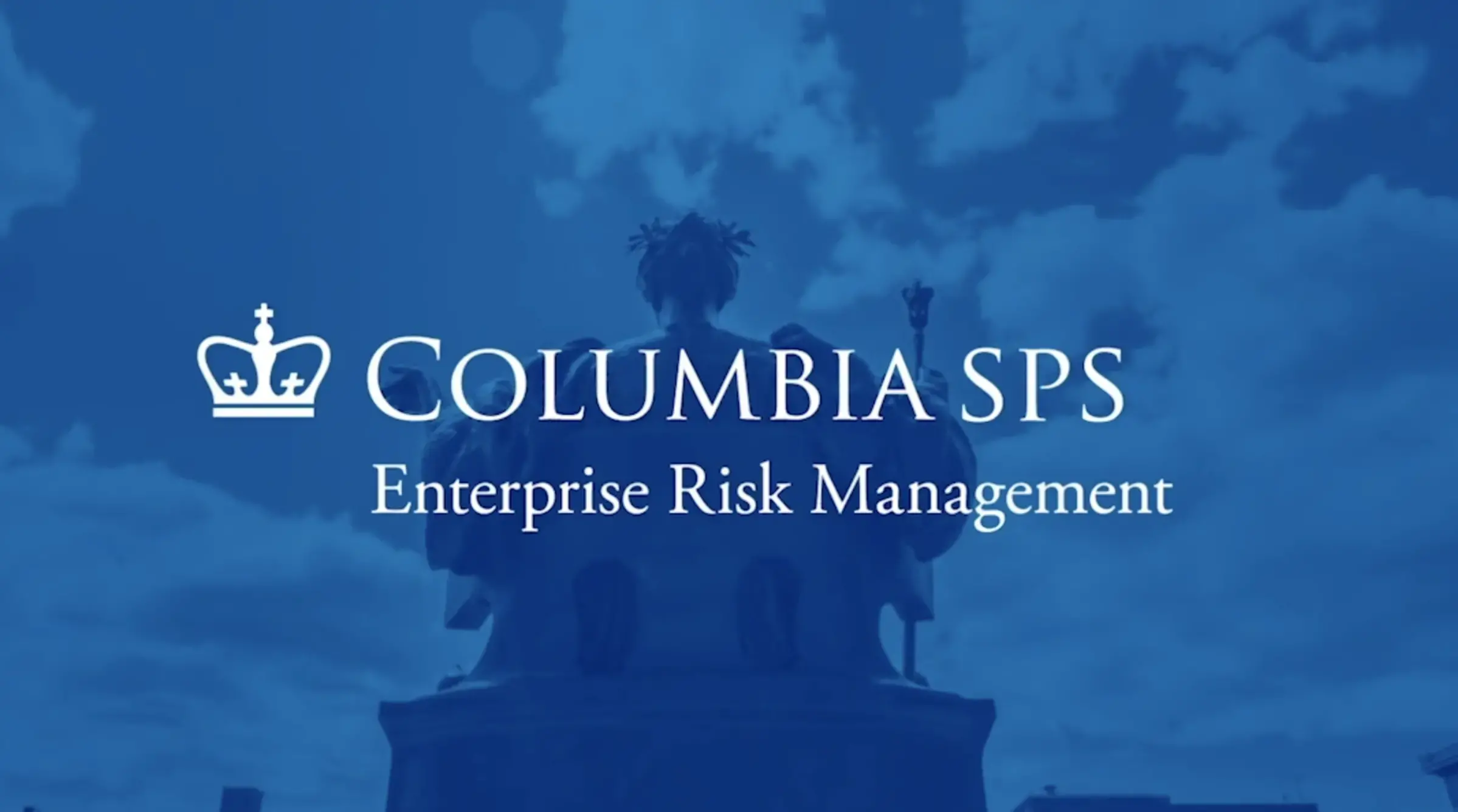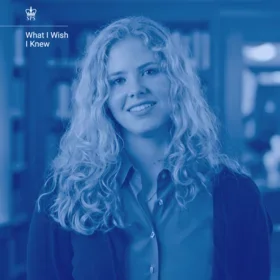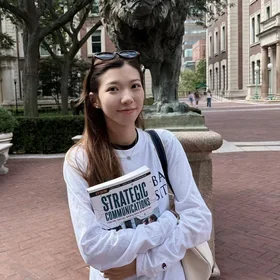Audrey Ding, a student in Columbia’s Enterprise Risk Management (ERM) program, made a difficult decision to shift her career path from consulting into risk management. And while the decision wasn’t the easiest—especially in the light of the global pandemic that has disrupted many industries—Audrey found the resources she needed to make the change at Columbia.
We sat down with Audrey to learn more about her experience with the program, the HyFlex modality, and the key resources she relied on when making the transition between industries.
Why did you decide to enroll in the ERM program at Columbia?
After I graduated from Georgia Institute of Technology with a bachelor's degree in Applied Mathematics, I worked at consulting firms for three years. Then I decided to change my career path and go into the financial sector and I thought Columbia’s community would give me access to great resources and networking opportunities.
In addition to Columbia being a top university, the ERM program is one of the best, and you really have the chance to make connections with people here. The Columbia alumni network provides a great chance for career development.
What do you think makes the ERM program here so special?
The curriculum is very dynamic. It covers a wide range of areas, so that you can choose paths based on your interests in risk management, including traditional risk management, financial risk management, etc. So the curriculum at Columbia is unique in the way that it allows students to move in the direction of their choice.
Speak a bit about your internship experience. How were you able to get the positions?
So this semester has been busy for me—I'm working at two internships, in addition to taking four classes. One of my internships is with the admissions office, and the other is at a private equity firm.
I received my internship for the admissions office through my academic advisor. It has been a fun job for me because I learned a lot about the admissions process and the ERM program. I see this as a way to give back to the Columbia community.
As for my private equity firm internship, I found it on LinkedIn, and the Career Design Lab helped me to prepare for my interviews. In the position, I'm doing a lot of risk analysis and industry research.
Were there any courses that particularly helped you during your internship?
For my admissions internship, the Strategic Communication class helped a lot because I had to explain to students and prospects more about the program, or how to go through the application process. So that class prepared me well with its focus on how to communicate with people.
For my private equity firm internship, Financial Risk Management and Corporate Finance were the two classes that really helped me on the job. I learned how to do financial forecasting, and the role those risks play in the financial sector—specifically, the role that strategic risks and regulatory risks play. Those classes gave me a good understanding of how the sector works and the potential of the industry.
I would recommend the Strategic Risk Management course to other ERM students, as well. It’s a great class because it helps you understand how the industry works from a strategic point of view. It really ties everything together. You work on a lot of case studies in that class. Another class I would recommend is Introduction to Quantitative Risk Management that introduces risk from an analytical standpoint, so there is a lot of modeling involved.
What resources are available to prospective students if they enroll in the program? Especially in a virtual environment?
We have a really good team of advisors at the School of Professional Studies; every student is able to get questions answered through appointments with advisors. Right now, the advisors offer Zoom meetings or phone calls. Speaking with an advisor is how I learned more about the curriculum, and how I chose my classes. So you can definitely communicate with your advisor about what you want to do and where you want to go, and they will point you in the right direction.
Another key resource is the Career Design Lab that helped me so much in preparing for my interviews and reviewing my resume. I think that's a great resource that every student should definitely utilize. They also host student panel events and webinars with industry professionals that help you network with the companies that you want to apply to.
What has been your experience with the faculty in the ERM program?
The faculty members in the program are really special because most of them are working in the industry full-time, which means that they can bring current insights from the industry into the classroom. This is really valuable in the teaching process because students can actually learn from real-time events. For example, the COVID-19 pandemic brought up a lot of risks that companies are dealing with in new ways, and the professors were able to share their insights about how their firms are dealing with the situation right now.
Why did you choose the HyFlex curriculum instead of the online option? What has the in-class experience been like?
Online classes have been great, but I do enjoy the in-person interactions with my professors more because I feel like it’s a more productive learning experience. I like having the ability to come to campus and have human interactions with my professors, so I can ask better questions.
It really feels like a normal class aside from the fact that we have to maintain social distancing. So the HyFlex classrooms don’t feel especially different.
How has the value of the ERM program and the learning experience at large been affected this year?
I think everything is mostly the same. Even though we are learning in Zoom sessions, rather than in-person, we can ask questions, interact with our peers. I would definitely encourage students to apply. Even with everything going on right now, I think this is a great learning experience. This is the only time you can learn in the HyFlex setting, and it is really exciting. One of the benefits of HyFlex classes is that flexibility—you can arrange your schedule on a daily basis, and take classes from anywhere you’d like. It is a very dynamic learning community—not only do you learn from your professors, but you also learn from your peers who have a wide variety of work experience and background.



